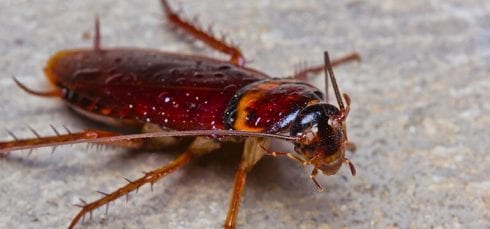REPORTS of shocking cockroach infestations are nothing new in Spain, with its warm climate, long summers, and myriad of dense cityscapes rife with the kinds of food the critters love.
But as Spanish media has reported, the bugs are getting stronger, more resistant to insecticides, and growing in number due to climate change.
The German cockroach, a common variety found primarily in domestic environments, is now showing resistance to multiple kinds of insect-repellent chemicals, reports 20minutos.
After hibernating in the winter, the bugs bloom in the springtime, thriving in the warm temperatures.
As the weather warms, their metabolic processes accelerate, and they develop resistance to pesticides, explained Jorge Galvan, the director of the National Association of Environmental Health Businesses (ANECPLA), to 20minutos.
According to data from pest-control service Anticimex, reports of cockroach infestations have increased by 33% in the past year.

Some bugs better off
As the world heats up due to climate change, some fragile insects are expected to go extinct in the coming decades as a result of the massive biodiversity loss the Earth is facing.
Others, however, will be just fine.
Cockroaches are hardy creatures, known for their adaptations to diverse climates and supposed ability to survive the fallout of nuclear strike, and thus well equipped to endure a hotter world, perhaps even thrive in it.
As a result of rising temperatures, the cockroach season in Spain has expanded, beginning months earlier and ending at least a month and a half later than it used to, Galvan said.
This allows the bugs more time to reproduce, thus increasing their overall numbers.
Galvan also noted that rising temperatures are also related to cockroaches’ resistance to insecticides, as a greater number of roaches means a higher probability of random mutation, and therefore a greater chance of developing immunities to certain chemicals.
In Spain and southern Europe, experts warn that rising temperatures may soon cause a host of ecological and potential public health problems.
Studies of ocean currents and sea surface temperature have suggested that the Earth’s tropical zones are expanding, and that parts of the Iberian peninsula are slowly entering the planet’s tropics.
The World Health Organization has reported the presence of tropical diseases like dengue arising in Europe since 2010, including in Spain, France, Portugal, and Italy.
Some insect populations, like honeybees, will likely suffer, with one 2020 study estimating that the pollinators have already declined by 17% in Europe.
But pests like cockroaches, locusts, and houseflies may actually be better off under chaotic climate change conditions.
Locust plagues in the Horn of Africa have wrought havoc on crops in recent years, as the insects thrive under the heavy rains and hotter temperatures provoked by climate change, while the global housefly population is expected to more than double by 2080.
READ MORE
- ‘Mutant’ cockroach warning in Spain: Experts say numbers of the bugs have soared by a third while their genetics are rapidly changing – this is wh
- Cockroach warning in Spain: Vile bugs ‘have become resistant to insecticide’ and ‘this summer will be difficult’, warn experts
Click here to read more Andalucia News from The Olive Press.








